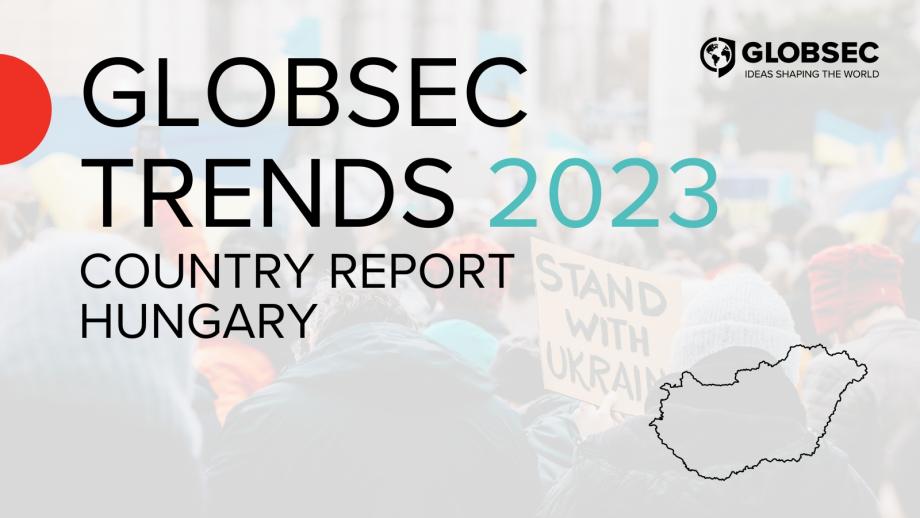GLOBSEC Trends 2023: The tale of “two Hungaries”

In 2023, GLOBSEC polled eight Central and Eastern European (CEE) countries on their views on the Western alliance, Russia’s invasion of Ukraine and democratic values. Data showed that while public opinion in most countries remain strongly supportive of the West and aiding Ukraine, dark clouds are gathering in some parts of the region.
The GLOBSEC Trends 2023 polling results revealed that Hungarian society as a whole has not turned away from the western institutional system, and there is even an absolute majority (54%) that supports sanctions against Russia for its aggression in Ukraine. Regardless, substantial issues remain that make society vulnerable to foreign malign influence – not the least the country’s strong political divisions mirrored closely by the local population.
The key findings include:
Hungary is strongly divided by party politics
Hungarian data shows that the country’s voters tend to align with the rhetoric of their respective political leaders on most issues, such as the war in Ukraine. Undecided voters, at the time of polling, tended to align more closely with respondents supporting the opposition.
Some degree of national consensus remains
While they are strongly divided, Hungarians do largely agree on the country’s EU and NATO membership, and a preference for a democracy based on equality, human rights, freedom and the rule of law.
Varied views on partnership
Both the ruling party’s voters and the opposition’s view Germany as the country’s main strategic partner. However, Fidesz backers consider China to be almost as important as Germany, reflecting the ruling party’s success in promoting the Chinese partnership to its supporters.
Divergent perspectives on the war
Regarding Russia’s aggression against Ukraine, the two main political camps in society live in almost completely different worlds, and the same holds true regarding sanctions or weapon deliveries to Ukraine. Undecided voters tend to agree with pro-sanctions views but are strongly against weapon transfers to Kyiv.
Agreement on democracy but not its label
Hungarians generally agree that democracy based on equality, human rights, freedoms and the rule of law is beneficial for their country. However, when asked about liberal democracy, they split along party-political lines, indicating the impact of anti-liberal narratives.
Differing media consumption habits
Hungarians tend to consume media differently based on party affiliations. And while it is likely that consumption habits are influenced by existing political views, the substantial volume of potentially misleading and biased content in some outlets helps conserve certain societal attitudes.
Read more in the report below.
